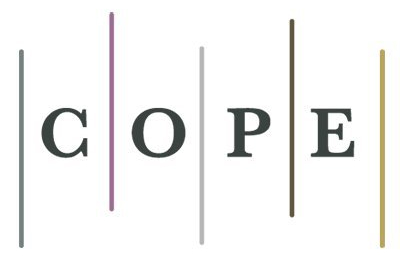Submissions
Submission Preparation Checklist
As part of the submission process, authors are required to check off their submission's compliance with all of the following items, and submissions may be returned to authors that do not adhere to these guidelines.- 1. The article represents an original and unpublished contribution and has not been published in other journals and books.
- 2. The article is not being evaluated in another national or international journal, including the O&S itself.
- 3. The article is within the scope of O&S.
- 4. The article is signed by a maximum of four authors.
- 5. The article is written in Portuguese or English language.
- 6. The article contains the following elements: (a) title; (b) abstract and (c) keywords (minimum three and maximum five), (d) introduction, (e) body of text in several sections, (f) conclusions, and (g) references.
- 7. The abstract must contain 200 to 250 words and be structured with clear and precise information about objective, method, results and main contribution of the research to the conceptual-theoretical advance of its field of knowledge.
- 8. The article is submitted in PDF file.
- 9. Article is formatted (a) in 1.0 line spacing, (b) Times New Roman font size 12, (c) does not exceed 13.000 words (including all elements such as figures, tables and references), (d) with citations and references in accordance with APA (American Psychological Association) standards. Access the templates available in item 14 for more information on APA standards, formatting of figures and tables, and other journal standards.
- 10. The article does not contain any form of authorship identification, either at the time of submission or in all revision rounds. For this, the author needs to stick to the identification in all parts of the document (name, properties and metadata). To remove authorship, just click on the word document in Files> Information> Inspect document> Check for problems> Inspect document> Inspect> Click on "Remove all" in "Document Properties and Personal Information"> Reinspect> Close. Still in word, go to options and check if there are no identifications in "Username". Then do a pdf conversion. Check to see if there is any indication of authorship in the generated PDF document. To do this, access "Properties" in the "File" menu. We suggest that disconnect from your profile in the pdf reader before converting the word to pdf.
-
11. The article is submitted exclusively through the OJS system (Open Journal Systems) within the O&S website.
- 12. Metadata are duly completed during the submission process: (a) title in lower case letters, initials in upper case letters, (b) full name of each author, (c) their full institutional affiliations, (d) their countries, (e) respective emails and (f) respective summaries of the full biography.
- 13. The article is free of plagiarism or self-plagiarism.
- 14. In phase 3 of the publication process, the authors will provide a version of the article (approved in stage 2) in O&S’ layout. This version must strictly follow the journal layout model: Model of articles in Portuguese or Model of articles in English.
- 15. In phase 4 of the publication process, the authors will provide a version in the complementary language (English for articles approved in Portuguese and Portuguese for articles approved in English) of the article approved in phase 3, within a maximum period of 30 days. The final version in the complementary language must include in attachment a declaration from an O&S partner organization attesting its linguistic quality. The version of the article in a complementary language must strictly follow the journal layout model: Model of articles in Portuguese or Model of articles in English
- 16.Authors will provide a video (phase 5 of publication process) with a maximum duration of 60 seconds, that does not exceed 25 MB in size, within 30 days of the approval date for O&S publication. The authors agree that the video will be used by O&S in their social networks to disseminate the articles published in the journal. In the video, one or more authors of the article should talk about its relevance and originality. The video should not explain the whole article but encourage people to be interested in reading it.
- 17. The authors are aware that the submitted article goes through five phases of evaluation and can be rejected in any of these phases. Even after several rounds of review, if the article does not achieve the necessary improvements, it can be rejected for publication. Authors who fail to complete the phases within a reasonable time may be excluded from the publication process.
- 18. The authors understand that they retain the copyright related to their article and grant to the Organizações & Sociedade (O&S) and the School of Administration of the Federal University of Bahia, EAUFBA, the right of first publication, with the work, simultaneously licensed. under Creative Commons Attribution License, allowing article sharing.
- 19. The authors understand that they are authorized to enter into additional contracts separately for non-exclusive distribution of the O&S published version of the article (e.g., publishing in institutional repository or as book chapter), with acknowledgment of authorship and initial publication in O&S.
- 20. Authors understand that they have permission and are encouraged to publish and distribute their article online (for example, in institutional repositories or on their personal page).
- 21. Authors who publish in O&S undertake to join the scientific evaluators database and to review articles submitted to the journal, when requested.
- 22. The authors fully adhere to the ethics principles established by the O&S and the Committee on Publication Ethics (COPE - https://publicationethics.org).
- 23. The authors fully adhere to the basic guidelines for integrity in scientific activity established by the National Council for Scientific and Technological Development (CNPq - http://www.cnpq.br/web/guest/dirturas).
Theoretical development articles
Theoretical articles must advance the theory or the theory development process regarding organizations, research methodology and/or societal issues. Theoretical papers (a) develop new organization theory, (b) significantly challenge, expand or clarify current theory, (c) synthesize recent advances and ideas into fresh theory, (d) initiate a search for new theory by identifying and carefully delineating a novel theoretical problem, or (e) craft ways to improve the process of theory development.
Empirical investigation articles
Empirical articles should draw on empirical work and robust theorizing processes to make a strong contribution to organization studies and practice. In empirical articles, there is an interplay between theorizing and empirical research; they are mutually informative.
Copyright Notice
This work is licensed under a Creative Commons Attribution 4.0 License.
The O&S adopts a Creative Commons Attributions License 4.0 in all published works, except where specifically indicated by copyright holders.
Privacy Statement
The O&S recognizes the importance of protecting the information collected from website users in the operation of this website, and take reasonable steps to maintain the security, integrity and privacy of any information. Names and addresses informed in this Journal will be used exclusively for the services in use in this publication. They will not be available for other finalities or third parties.





